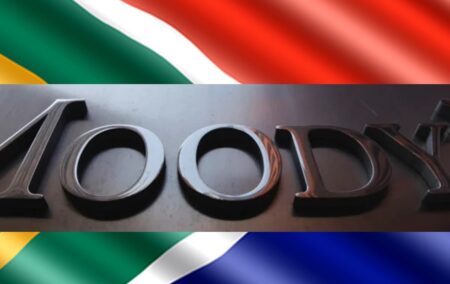Finance Minister Tito Mboweni insisted the government remained committed to structural economic reforms, but acknowledged ratings agency Moody’s downgrade ‘could not have come at a worse time’.
The downgrade, announced late on Friday, came as no surprise as the other ratings agencies, S & P Global and Fitch had downgraded South Africa to junk in 2017.
The move was expected in the face of SA’s poor GDP growth performance and fragile fiscal position, even before the onset of the Covid-19 pandemic.
To stave off complete junk status Moody’s gave South Africa time to implement policies necessary to result in real growth. By March Moody’s was left with no option as the government had implemented no policies that would have met Moody’s criteria and South Africa’s growth outlook just continued to deteriorate.
It is understood that the downgrade was also a certainty because Moody’s was running a reputational risk by having taken so long to announce the downgrade.
‘The key driver behind the rating downgrade to Ba1 is the continuing deterioration in fiscal strength and structurally very weak growth, which Moody’s does not expect current policy settings to address effectively,’ Moody’s said in a statement.
‘The unprecedented deterioration in the global economic outlook caused by the rapid spread of the coronavirus outbreak will exacerbate SA’s economic and fiscal challenges and will complicate the emergence of effective policy responses,” Moody’s said.
Mboweni said the sovereign downgrade ‘will further add to the prevailing financial market stress’. The downgrade, coupled with the Covid-19 crisis ‘will truly test South African financial markets’.
He added: ‘South Africa’s deep, stable financial sector and robust macroeconomic policy framework have always been flagged as a credit strength, including the South African Reserve Bank’s demonstration of a good track record in implementing credible and effective monetary policy and preserving financial stability.’
The downgrade would ‘further see South Africa being excluded from the FTSE World Government Bond Index (WGBI) and the government bond market will experience further capital outflows as fund managers with investment grade mandates will be forced to sell South African government bonds’.
Mboweni said: ‘To say we are not concerned and trembling in our boots about what might be in the coming weeks and months is an understatement.’
He concluded: ‘It is with a heavy heart to note that all three major credit ratings agencies currently rate South Africa at sub-investment grade. However, every crisis presents an opportunity. The opportunity we have today is to unite and work together to address our challenges. We as a people have overcome insurmountable challenges in the past and we can still overcome. We shall rise. We have to rise. We owe it to ourselves.
The comparison between the BRICS countries has China with the highest possible ratings across the three agencies at A1/A+. Russia is rated Baa3/BBB- (just above junk) by Moody’s and Fitch, and S&P at one notch up at Baa2/BBB. India is rated Baa2/BBB by Moody’s and Baa3/ BBB- by Fitch and S&P.

